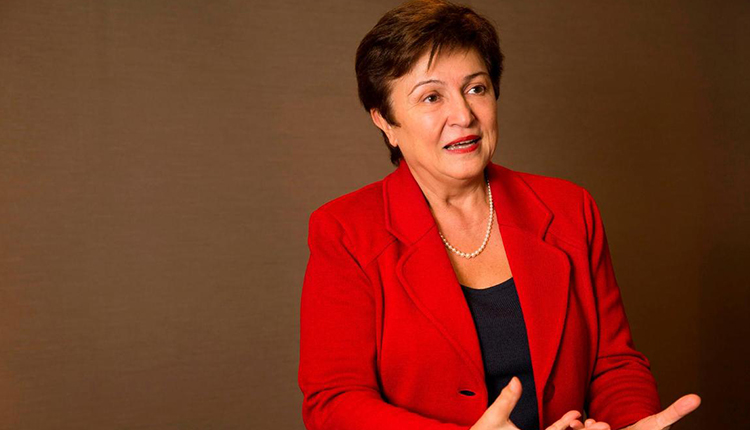EU nominates World Bank’s Kristalina Georgieva as next IMF chief
The European Union has nominated World Bank’s chief executive Kristalina Georgieva to lead the International Monetary Fund (IMF), ending weeks of impasse among 28 countries.
Georgieva, a former EU commissioner for Bulgaria, is a highly respected economist who won plaudits during her time at the World Bank. Should she be appointed in October, she would become the first eastern European national to lead the Fund.
Last month, Christine Lagarde resigned as the managing director of IMF to take on a new role as the upcoming head of the European Central Bank (ECB). European officials found themselves in a standoff and decided to take a vote in order to nominate their most-favoured candidate.
The candidates in the running also include Jeroen Dijsselbloem, former Dutch finance minister and president of the Eurogroup; Spanish finance minister Nadia Calvino; and Olli Rehn, central bank governor of Finland and former European commissioner for the euro.
In a secret ballot Georgieva won the support of 56 percent of the bloc’s 28 member states, representing 57 percent of the population of the EU. Dijsselbloem commanded the support of 44 and 43 percent, respectively, a senior official told the Financial Times. But Georgieva failed to meet the 65 percent population criterion, leading to challenges from Stockholm and The Hague. But, after two hours of debate over a conference call between ministers on Friday evening, Dijsselbloem conceded defeat.
IMF member countries can make nominations until September 6. After that, the IMF board will interview the nominated candidates and aim to complete the process of selecting the fund’s new head by October 4.
The fund would have to alter its bylaws, which prohibit a managing director from being older than 65, to accommodate Georgieva, who turned 65 this year.
The IMF has always been led by a European, since its creation. In contrast, the United States get to appoint the president of the World Bank.
Back in 2011, when Christine Lagarde was appointed to lead the IMF, there were two main topics to deal with: rebuilding the reputation of the IMF after a scandal involving its previous chief and supporting the euro zone during the sovereign debt crisis. Now, the global landscape is arguably more complex than eight years ago.
The U.S. and China have been on a trade dispute for about two years. Their trade war is seen as the biggest stumbling block to global growth. At the same time, there is a strong focus on monetary policy – how central banks decide to support the various economies and whether their tools are still effective after nearly a decade since the sovereign debt crisis.
“Whoever is going to head the IMF needs to be ready to go to war. The war is trade war, currency war – those are emerging risks that need to be addressed,” Mouhammed Choukeir, chief Investment officer at Kleinwort Hambros told CNBC earlier this week.
Source: CNBC & The Financial Times


